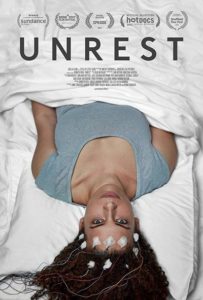
The Situation
In 2020 chronic fatigue syndrome (ME/CFS) finds itself in an unsettling place: it’s a common, serious disease that can cause profound levels of disability and distress that gets little respect or funding.
Treatment options are poor. No validated drug treatments are available, drugs trials are exceedingly rare, knowledgeable doctors are hard to find, and the vast majority of people with the disease remain undiagnosed.

ME/CFS has been greatly neglected by the powers that be. Patients and their supporters are fighting back.
Funding is far, far below what’s needed and researcher interest is appallingly low. Dramatic increases in funding, medical education, clinical trials and respect are needed.
In short, a lot of work remains to be done! You can help by educating yourself, by finding ways to get better (and sharing them) and by supporting efforts to bring about the end of this disease.
The Basics
An introduction to some very basic issues in chronic fatigue syndrome (ME/CFS):
The Name(s)
Dating back to the Civil War, the disease has been called many different names (epidemic neurasthenia, Royal Free disease, myalgic encephalomyelitis, chronic fatigue syndrome, chronic fatigue immune dysfunction syndrome (CFIDS), low natural killer cell syndrome, systemic exertion intolerance disease (SEID), etc.).

The multiplicity of names for this disease reflect the different interpretations it’s been given. (Painting by Ken Anbender – person with ME/CFS)
The term myalgic encephalomyelitis came to prominence in the 1950’s. After a CDC-sponsored group in the 1980’s recommended the disease be called chronic fatigue syndrome, that name quickly gained sway in the scientific literature and with doctors in the U.S. From the beginning, the name’s belittling connotations have sparked outrage from patients.
An effort to merge the two most prominent names, myalgic encephalomyelitis and chronic fatigue syndrome, as a bridge to a new, at that time unknown name, led the NIH to adapt the term ME/CFS. That term or a variation of it (CFS/ME) is now used frequently in the scientific literature and by patients. The term myalgic encephalomyelitis (ME) has enjoyed a renaissance as well and is now used by many patients and disease groups.
Prevalence
According to the 2015 Institute of Medicine Report, studies suggest that from 836,000 to 2.5 million Americans have ME/CFS. Because most people (80-90%) with the disease are not diagnosed, however, some doctors believe the incidence is far higher.
ME/CFS occurs in both sexes and all ages, but is more common in women than in men and most commonly strikes people in two age groups – adolescence/early adulthood and middle age. The average age of onset is 33. The disease is often triggered by an infectious event but can occur gradually or without a discernible trigger.
- Tips for Newbies – new to this disease? Check out our Tips For Newbie collated from people who would very much like to help you from making the mistakes they did.
Symptoms
The core symptom in ME/CFS is called post-exertional malaise (PEM). The term was coined to describe the severe symptom exacerbations that can be provoked by even mild physical or mental activity or exertion. Other key symptoms include:
- Profound fatigue causing reduction, impairment or inability to carry out normal daily activities..
- Unrefreshing sleep
- Cognitive impairment
- Pain
- Orthostatic intolerance (symptoms that worsen when a person stands upright and improve when the person lies back down).
Many other symptoms can be found. Find out more about symptoms here:
Impairment
Studies indicate that ME/CFS is among the most functionally disabling diseases known. People with ME/CFS are as – or more –functionally limited than people with type II diabetes, multiple sclerosis, congestive heart failure and end-stage renal disease. They also have a lower quality of life than people with cancer, stroke, renal failure and schizophrenia. Twenty-five percent are home or bedbound. One study found that only an astonishingly low 13% were employed full-time.
Prognosis
Doctors report that most people with ME/CFS feel worse at first, improve and then plateau and remain at limited functionality. A significant subset of patients, however, regress or remain severely ill. Recovery can occur but is rare:
Doctors
Finding a doctor
Few doctors specialize in ME/CFS and finding a doctor open to learning about and treating this disease can be difficult. Find resources that will help you find a doctor and maximize your doctor appointment here.
Share with Your Doctor
Your doctor may need help. It’s entirely possible they may not want help but if they’re willing to learn a bevy of resources exist that can help them.
- Share the IOM report (2015) and its diagnostic algorithm with your doctor. The Institute of Medicine is the most highly regarded medical reporting group in the United States.
- Unrest (2017) – Tell your doctor she/he can get continuing medical education (CME) credits for viewing the Sundance Award Winning Documentary. It’s a powerful and evocative film centered on severely ill ME/CFS patients.
- Dr. David Kaufman – 11 minute video from respected doctor on diagnosing and managing ME/CFS.
- “Myalgic Encephalomyelitis/ Chronic Fatigue Syndrome: What Every Family Physician Needs to Know” – published in the Family Doctor: A Journal of the New York State Academy of Family Physicians. Produced by ME/CFS expert Dr. Susan Levine, Mary Dimmock and Terri L. Wilder, the article provides a basic introduction to ME/CFS. A good start – not too long, not too short – for doctors who are willing to learn.
- The IACFS/ME Primer for Clinicians – extensive primer on diagnostics and treatment put together by ME/CFS experts. Provide it for more interested doctors who are willing to invest some time.
- Myalgic Encephalomyelitis/ Chronic Fatigue Syndrome Diagnosis and Management in Young People: A Primer – Extensive primer for doctors treating young people.
- How to Prove To Your Doctor That You’re Not (Just) Depressed – Your doctor really should know better than to assume that you’re “just depressed” but often he/she doesn’t. Check out ways that may convince even the most close-minding that you’re not just depressed.
- Ten Ways to Prove That Chronic Fatigue Syndrome (ME/CFS) is a Serious Illness – Is your doctor giving you the brush off? As you exit stage left you might just want to leave him/her something to chew on. You never know – it might make a difference.
Treatment
Get Caught up on The Basics from the Bateman Horne Center
Watch the Bateman-Horne Center’s Six-Part ME/CFS and FM Video Series
Getting the Right Diagnosis
ME/CFS and FM are complicated illnesses and getting the right diagnosis can be challenging. When depression is present it is often misdiagnosed as the primary illness. Antidepressants and psychotherapy have not, however, been found to be effective in ME/CFS. Find out how to differentiate ME/CFS from depression.
The Bateman Horne Center Video Series
The Bateman Horne Center has produced a series of video presentations by longtime ME/CFS practitioner Dr. Lucinda Bateman which provide basic facts on diagnosis and treatment.
Activity Intolerance and Pacing
Learn why physical and cognitive activities can cause symptoms to worsen and how to identify and improve the “threshold” of relapse. Review the importance of pacing and realistic expectation setting that can minimize and even improve symptoms.
Getting Restorative Sleep
Poor sleep is a hallmark symptom of ME/CFS and FM. Not getting a good night’s sleep can worsen symptoms. Dive into the mechanics of good sleep with Dr. Bateman and learn why sleep disturbances occur and how to implement strategies that improve them.
Chronic Widespread Pain
Pain is one of the most troubling and hard-to-manage symptoms of ME/CFS and FM. Dr. Bateman teaches about the various types of pain, how pain is amplified, and treatment strategies to improve your own pain management.
Cognitive Impairment
People with ME/CFS and FM often suffer from cognitive impairment that can lead to brain fog, trouble word finding and more debilitating symptoms. In this class, you will understand the types of cognitive issues that commonly occur, possible causes, and how to implement strategies to improve cognitive function.
Orthostatic Intolerance (OI) Syndromes
OI, Postural Orthostatic Tachycardia Syndrome (POTS), neurally mediated hypotension (NMH), and orthostatic hypotension can all be manifestations of ME/CFS and FM. In this class you will learn to access orthostatic intolerance objectively, how to differentiate between these syndromes and strategies to manage the symptoms they present.
Other Treatment and Coping Basics
- Treatment Resources – check out over 250 ME/CFS and FM treatment resources on Health Rising.
- My Patient Match – provides reviews on hundreds of treatment options
- CFIDS & Fibromyalgia Self-Help: Provides online self-help courses and blogs that help people manage ME/CFS and FM, reduce stress, and improve their health.
- How to Get On – (How to Have a Great Disabled Life) – A self-advocacy guide for anyone who is homebound or bedbound in the U.S. Special focus on folks with Myalgic Encephalomyelitis. If you need assistance with housing, medical expenses, financial support, disability – this is the place to go.
- Fed up with Fatigue – Donna, a former journalist, gives her personal take on treatments to help with ME/CFS, FM and Lyme disease.
- Toni Bernhard’s Turning Straw into Gold blog is an antidote to depression and fear. Written by a longtime ME/CFS patient, it provides a Buddhist’s perspective on dealing with chronic illness. Check out her “How to Be Sick” book as well.
- Living with ME/CFS – Sue Jackson has been writing about her and her family’s struggle with ME/CFS and life in general for over 10 years. Check out her refreshing and personal take on “Living with ME/CFS”.
- Jamison Writes – Trenchant, sometimes funny, and thoughtful blogs from a former weightlifter/body-builder who, er…doesn’t look like a weightlifter anymore. (Check out “Weight, Weight…Don’t Tell Me I’m Fat!“)
- My World – A blog of a Canadian women’s thoughts, ideas, and ponderings (skewed as she puts it “towards the perspective of an over-educated, nature/dog/northern loving, chronically ill, Canadian woman”) plus some great pictures of the Canadian Wilderness.
- Quixotic: My M.E. Blog – Southern California man writes about his attempts to get well including overcoming a very nasty case of SIBO.
- Stonebird – The lived experience of severe M.E. – Covers stories, how to care for patients. the politics of M.E. etc.
- The Pained Ink Slayer – Celeste Cooper, chronic pain patient and author, has been writing about just about everything to do with pain – from the science to advocacy and most importantly, coping – for years.
Disability and Financial Resources
- Check out disability resources on Health Rising and How To Get On: How to Have a Great Disabled Life
- Learn the many ways you can get assistance in the U.S. on How To Get On. In fact, visit the page just to be amazed at how much information has been gathered there.
Sharing
Sharing yours or others’ stories is a powerful way to spread the word that these diseases are real and serious. You never know whose lives you might touch.
Share with family and friends
The ME/CFS experience has been richly documented on video and film.
Videos
- Ted Talk: Jennifer Brea, What happens when you have a disease doctors can’t diagnose – 17-minute Ted Talk that’s been viewed almost 2 million of times; share with everyone.
- Invisible Illness – Stories of Chronic Fatigue Syndrome – Powerful 2015 video produced by Palo Alto Online which features three San Francisco bay area ME/CFS stories including Whitney Dafoe and Jamison Hill.
- The Sleepydust video – Classic 9-minute 2006 video that’s been viewed over 175,000 times
- Dr. McIntire’s Frontline Series – One of the first major media productions ever done on ME/CFS – from the 1980’s
Films
- Unrest (2017) – Sundance Award Winning Documentary – powerful and evocative film centered on severely ill ME/CFS patients which received Oscar consideration; doctors can get CME credit for watching this film.
- M.E. (2018) – Award Winning animated documentary by Alexandra Hohner.
- What About ME (2017) – Documentary presents a comprehensive view of the forces which kept ME/CFS from receiving the support it should get.
- Forgotten Plague (2015) – Documentary by a reporter with ME/CFS which, while showcasing ME/CFS patient’s stories, examines the causes behind the neglect given this disease.
- Voices From the Shadows (2011) – award winning film focused on five people with severe ME/CFS in the U.K. with commentary from Dr. Nigel Speight, Lenny Jason PhD and Dr. Malcolm Hooperl
- I Remember ME (2001) – the first of the major documentaries on ME/CFS. Excellent historical overview of the disease plus poignant interviews with ME/CFS sufferer. Made by a person with ME/CFS. After seeing it Roger Ebert and said he now believes in ME/CFS.
Articles
- How to prove to your family/friends that you’re not just depressed. – The first thing virtually everyone (else) probably thinks when you get sick, whether they say so or not, is that you’re depressed. Rates of depression are increased in ME/CFS – it is a chronic illness after all – but it is not depression. Check out how to prove that to your family and friends.
- Ten Ways to Prove That Chronic Fatigue Syndrome (ME/CFS) is a Serious Illness – “Chronic fatigue syndrome” doesn’t sound like a serious illness so we can forgive those who try to hide a smile when they hear you have it. Find out how to prove to them that far from being a nothing disease, ME/CFS is actually one of the most disabling illnesses known
Advocacy Efforts

Working together, we can beat ME/CFS. In fact, it’s probably the only way we will beat ME/CFS in an acceptable amount of time.
Advocacy is critical to getting more research funding, finding treatments and increasing awareness of this disease.
- The Solve ME/CFS Initiative – The leader in Congressional and federal advocacy in the U.S., the United States, the SMCI employs Emily Taylor – our first full-time professional ME/CFS advocate. The SMCI also employs a lobbying firm to support its efforts on Capitol Hill. Every year the SMCI produces the biggest and most important advocacy event in ME/CFS – Lobby Day in Washington, DC.
- ME Action Network – Conceived by Jen Brea, the creator of the film Unrest, this young (5 years old) awareness and advocacy organization produces the Millions Missing campaigns and is engaged in awareness and educational campaigns and state actions.
- Occupy ME – Jennie Spotila’s hard-hitting blogs primarily focus on advocacy issues involving the US federal government and the NIH.
- David Tuller – an investigative journalist joins the fray. David Tuller couldn’t stand the bad science, so he wrote and wrote and wrote about it – and became one of ME/CFS’s most effective advocates. Check out his Trial by Error articles on the infamous PACE trial and other biopsychosocial debacles.
- Health Rising – Cort Johnson frequently writes on advocacy.
- NIH Funding Diseases and Conditions List – Keep your eye on this page. This is where the NIH reports on how much (or how little in the case of ME/CFS) it’s funding diseases.
- Trans-NIH Working Group – the big group that couldn’t or wouldn’t. The “Working Group” is an NIH-wide group of Institutes tasked with producing funding for ME/CFS. It has failed miserably at the job.
Supporting ME/CFS Research in the U.S.
Private research organizations play a vital role in moving ME/CFS forward. The small pilot studies they fund give ME/CFS researchers a chance to gather the data needed to apply for much larger NIH grants. Many important findings in ME/CFS were made possible by private research organizations. Here are some in the U.S.:
- Open Medicine Foundation – Three Nobel Prize winners and six Academy of Science members say it all about the Open Medicine Foundation’s high-powered research effort lead by Stanford geneticist and inventor Ron Davis. Multifaceted research program exploring genetics, immunology, metabolomics and energy production. A recently opened ME/CFS research center at Harvard.
- The Solve ME/CFS Initiative – led by a former patient, the SMCI funds cutting edge research, developed the first Patient Registry and Biobank, and employs the only full-time ME/CFS advocate. Funds pilot studies which have produced breakthroughs in our understanding of ME/CFS. When the SMCI’s Patient Registry opens, join it and help advance the science.
- Institute for Neuro Immune Medicine | Nova Southeastern University – Longtime ME/CFS researcher, doctor and advocate, Nancy Klimas leads this revolutionary research program which uses supercomputers to model what’s going on in ME/CFS. Currently testing a timed, duo-drug combination in Gulf War Illness (GWI) and ME/CFS. Recently awarded a mammoth grant to research GWI.
- Simmaron Research Foundation (SRF) – Conceived by longtime ME/CFS physician Dr. Dan Peterson, the SRF is focused on immune research, spinal fluid research and Ampligen. Uncovered an ME/CFS atypical subset. Currently focused on documenting immune changes produced by Ampligen.
- Bateman Horne Center – multidimensional treatment, research and educational center. Its grand mission – to educate as many doctors as possible in the U.S. about ME/CFS diagnosis and treatment. Led by one of our best and most dynamic speakers – Dr. Lucina Bateman.
Staying Engaged and Getting Informed
Videos
- Solve ME/CFS Initiative Webinars – the SMCI has provided excellent webinars featuring the top ME/CFS doctors and researchers for years. Don’t miss this…
- The ME/CFS and FM basics video series – Dr. Bateman covers the basic aspects of ME/CFS and FM diagnosis and treatment in this six-part series.
- The Bateman Horne Center – has the largest number of educational videos on the web.
Books
- Lighting Up a Hidden World by Valerie Free – an enormous accomplishment. Lighting Up a Hidden World endeavors to cover the whole of ME/CFS and does it very well.
- Managing Chronic Fatigue Syndrome and Fibromyalgia: Feel Better, Take Charge, Regain Hope by Bruce Campbell – excellent guide to pacing, coping and management
- CFS Unravelled: Get Well By Treating The Cause Not Just The Symptoms Of CFS, Fibromyalgia, POTS And Related Syndromes – well reviewed book by a person who recovered from ME/CFS.
- An Adolescent’s Guide to ME/CFS – A young person’s guide to ME/CFS
- Chronic Fatigue Syndrome: A Treatment Guide, 2nd Edition – voluminous guide to potential treatments by Erica Verillo
- The FibroManual: A Complete Fibromyalgia Treatment Guide for You and Your Doctor (2016) by Ginerva Liptan – if you experience pain check this book out.
- Diagnosis and Treatment of Chronic Fatigue Syndrome and Myalgic Encephalitis, 2nd ed.: It’s Mitochondria, Not Hypochondria (2018) by Sarah Myhill MD – Treatment book by M.E./CFS expert with a focus on the mitochondria
- A Beginner’s Guide to ME/CFS – a professor and ME/CFS sufferer provides tips for people new to the disease
Forums and Facebook Sites
- Phoenix Rising – large, broadly-focused forum on ME/CFS.
- Science4ME – research-focused forum.
- Health Rising – smaller forum with links to many resources.
- Check out the many Facebook sites on ME/CFS here.
Websites and Blogs
All-Purpose
- The Health Rising website presents the most comprehensive and in-depth discussion of ME/CFS research and treatment finding on the web. Includes many treatment resources and recovery stories. Be sure to subscribe to the blog.
- MEPedia – find thousands of articles in the MEAction-produced, volunteer-driven online encyclopedia on ME/CFS.
- ProHealth – A nutritional company founded by a person with ME/CFS provides regular blogs on ME/CFS treatment and research issues.
- The Solve ME/CFS Initiative – funds research, provides blogs, regular research updates, webinars with ME/CFS experts, and is active in advocacy.
- The Open Medicine Foundation – provides News and Experts blogs and a Resource Center.
- ME Essential – members of the ME Association receive a quarterly magazine containing interviews and up-to-date information on medical and scientific developments and help with coping.
- MERUK’s (ME Research UK) – Free Breakthrough Magazine provides a quarterly look at MERUK and other research findings, treatments and advocacy.
- A CFS Patient Advocate – longtime blog from Christopher Cairns, the father of a daughter with ME/CFS, who explores the research and treatment options in detail.
- Life As We Know It – has been covering the world of ME/CFS research and advocacy for over 15 years…
Have any suggestions for this page? Please let us know in the comments below.











You left out the film Voices From the Shadows from 2011. It is available to view for free on Vimeo. http://voicesfromtheshadowsfilm.co.uk/
Thanks. What an extraordinary collection of films have been made. I just put it in there.
Thanks for including “Voices…” You might also like to include this excellent film from 1993? with Dr Anne Macintyre. https://www.youtube.com/watch?v=lINkStCj3rs&feature=share
How about that. It says it’s from the 1980’s….god knows what happened to the people in the video. I put it on the post.
This is one of the most convincing videos on the reality and severity of ME/CFS in my opinion.
SECOND OPINION | CHRONIC FATIGUE SYNDROME| BCBS | Full Episode
https://www.youtube.com/watch?v=8K8_sIlT7Ms
Thanks Liz for the suggestion 🙂
Reduction or impairment in the ability to carry out normal daily activities, accompanied by profound fatigue…..suggestion…. Profound fatigue causing reduction, impairment or inability to carry out normal daily activities..
I think I probably got that straight from the IOM report but I like yours better.
Great article, you are my favorite source for up to date research news…thank you for sharing your energy and time and information. Love and blessings!
Thanks!
Hi, this page is a great idea. One minor thing – the very first illustration image, of concentric circles of people, they’re all male people, so more than half of the demographic may look at that and not feel that they belong in the group being addressed. This runs counter to the aim of making people feel that they are not just one sick individual but part of a community in which there is at least some knowledge and understanding of the problem.
How about that. I had no idea…I will look elsewhere.
I noticed that as well. It is inaccurate since most patients are women. It always feels like we have to hide this fact, like it is shameful that ME mostly affects women. That is how sexism affects this disease and it’s the primary reason that it has gotten so little funding and acceptance – it is a “woman’s disease” and the common view is that women lie and/or are crazy….
Thank you Cort so much for posting this! This is just awesome!I was blown away by the sheet you take to the dr. that was on Pheonix Rising!
Thanks!
Thanks SO MUCH for putting ALL these resources in one place. Very kind! Great idea to send it to all new members.
Thanks!
http://www.positivehealth.com/article/cfs-me/a-radical-care-pathway-for-me-cfs
A two-page article, free to download & print, easy to give to a doctor & quick to read.
‘A Beginner’s Guide to ME/CFS’ , my little book produced with the PWME reader in mind. Many readers say they wish they’d had it at the start. Encourages carers, too. And offers suggestions based on Les Simpson’s red blood cell theory…Montoya and Ron Davis now interested in this.
I’m perfectly happy if anyone copies, photocopies..just want the information out there….
Thanks Nancy – I will put it on there. I will also put in in the Tips for Newbies page. I remembered your book but I couldn’t find it.
Amazingly absent from the list of reasons why someone should believe the illness is real is the actual reason the CDC and society believed the
1985 Lake Tahoe Mystery Disease, which you know today as “Chronic Fatigue Syndrome” was real.
The EBV serology test.
We believe me/cfs will break through any day now. The greatest strides are made one step at a time. Greatest thanks to all those helping me/cfs patients. God bless.
Please see Dr. David Kaufman’s video to which Janet Defoe made reference:
https://www.youtube.com/watch?v=RC9TjgE_PlU
I would include the New York State Department of Health ME webpage as a resource: https://www.health.ny.gov/diseases/conditions/me-cfs/
Cort, check your email for another suggested edit.
You forgot CFIDS Foundation- an excellent group in MA that has helped many people with ME who were going through a crises. Their research is in a different area to other groups.
http://www.ncf-net.org/
Differential diagnosis from depression is important. Keith Geraghty is writing about that.
The use of the word ‘fatigue’ in both cases aids confusion.
If we substitute ‘muscle failure upon minimal exertion’, in ME/CFS, and ‘apathy’…lack of motivation …in the case of depression, it makes the distinction clear.
Another simple distinction…if exercise makes you feel better, it is likely you were depressed. If exercise makes you feel worse, it is likely that your illness is ME/CFS.
The sequence of mood-activity is also reversed:
The depressed person is sad, discouraged, apathetic, can’t be bothered to do anything. If encouraged into physical activity, endorphins will kick in and the person’s mood will improve.
The person with ME/CFS is highly motivated, really desperate to do things. But as soon as they try to do anything, their muscles fail and they find they can’t. At this point, they will get frustrated and upset.
These differences are so clear and so stark that I claim that anyone in the street could figure out whether someone had ME/CFS or was depressed. In five minutes. Over the phone. If they wanted to.
The people who make it complicated do so because they are desperate to insist that ME/CFS patients aren’t sick, they are mentally ill.
But we can at least be clear about it, and be clear about it to our doctors.
Thank you Nancy for your precise and so true statement (I can’t get the correct word today). So useful to inform one’s hopefully receptive doctor. “Definition”- that’s it.
Seasons Greetings to everyone.
Very useful and important ME vs depression distinctions to draw attention to Nancy. The only thing I’d take some issue with is the wholesale substitution of ‘fatigue’ with ‘muscle failure upon minimal exertion’. Though the latter would likely serve as a more accurately defining description for many ME sufferers – I don’t believe it can be the case for everyone, (admittedly basing this, atm, purely on my own experiences).
While I do still myself have issues with muscle fatigue in the form of a ‘lactic acid-satiated’ muscle seizing-sensation with repeated movements (principally in my arms – I don’t get to do that much with my legs!) – my main, more dominantly disabling problem has been ‘central fatigue’.
I know I’ve raised this point before, but this is because I tend to want to ‘defend’ my own, possibly more at variance ME symptom experience in a desire not to feel written out of a legitimate claim to ME illness diagnosis and acceptance. I do think there’s a tendency towards a degree of dogmatism at times, in relation to what is regarded as ‘ME-true’ symptoms/experiences, which I think can unfairly disallow for the reality of individual physiological differences, extent and ‘track’ of ME development, plus the sheer biological complexity of this neuroimmune disease itself.
Thanks for putting us on the alert against a tendency to try to codify ME/CFS in a way that reduces the richness and complexity of the disease. My guess is that many types of ME/CFS await discovery. 🙂
Another teensy correction: it was previously called epidemic neurOMYasthenia (not to be confused with neurasthenia). I.e., ‘epidemic weakness of nerves and muscle’, rather than ‘nervous exhaustion’.
Thank you so much Cort for listing Stonebird- it means everything to us ! There’s just an issue with the link you gave – it points, to my horror, to an old, out of date page – called “main.html” that I am afraid I didn’t know still existed!
I have just updated the page and added a message giving the correct link to Stonebird- which is http://stonebird.co.uk/
Thanks again Cort for this great affirmation.
Fixed! Thanks Greg. I don’t know how I found it in the first place but it’s fixed now.